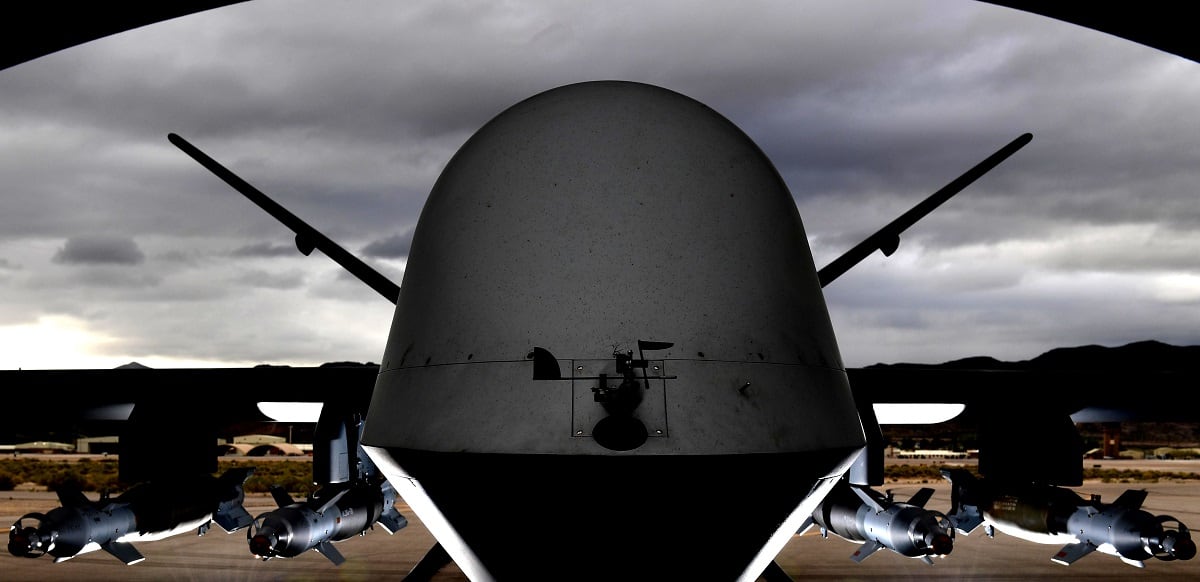An MQ-9A Reaper crashed in the Middle East last May after controllers lost the signal to the remotely piloted aircraft while it was trying to land, according to an accident investigation board report released Monday.
Air Combat Command said in a news release that the Reaper crashed May 6, 2017, in the U.S. Central Command’s area of responsibility, but did not specify where in the Middle East it happened.
The Reaper was from the 432nd Wing at Creech Air Force Base in Nevada, and was being operated by a launch and recovery element from the 361st Expeditionary Reconnaissance Squadron, ACC said.
According to the full report, which was dated April 23 and provided by ACC, the Reaper was returning from a combat support mission to an unidentified air field when the launch and recovery crew took over and started preparing for landing. The pilot tried to send an updated set of emergency mission instructions to the Reaper. But the pilot also powered down the Reaper’s Interim Modem Assembly before landing, which cut off the RPA’s link to the crew.
RELATED

Another Reaper was also transmitting on high power from the ground, which unintentionally interfered with the doomed RPA’s signal. As a result, the crew in the ground control station lost the downlink ― signals sent from the Reaper to the crew ― as well as situational awareness, the report said.
The signal problems meant the updated emergency mission instructions never got through to the Reaper. About one minute later, the crew followed the usual emergency procedures and cut off its uplink to the aircraft. It flew away from the airfield with its downlink transmitters disabled, the report said, and despite their efforts, the crews could not get the link back.
Because no waypoints were deleted on the emergency mission program, the Reaper didn’t have enough fuel to fly through all the waypoints before turning around and coming back to the airfield. It crashed two hours and 13 minutes later, when it ran out of fuel.

There were no injuries, deaths or damage to private property, ACC said. The destroyed Reaper cost $10.3 million, and no wreckage was recovered.
The report found the crash was caused by the unintentional interference from the other Reaper on the ground, and the failure to send an updated emergency mission program to the RPA after the mission control element handed it over to the launch and recovery element.
The investigation also found that the recovery crew’s decision to disable the Interim Modem Assembly before landing, and the mission crew’s practice of not deleting waypoints before handing it over, substantially contributed to the crash.
Stephen Losey is the air warfare reporter for Defense News. He previously covered leadership and personnel issues at Air Force Times, and the Pentagon, special operations and air warfare at Military.com. He has traveled to the Middle East to cover U.S. Air Force operations.





